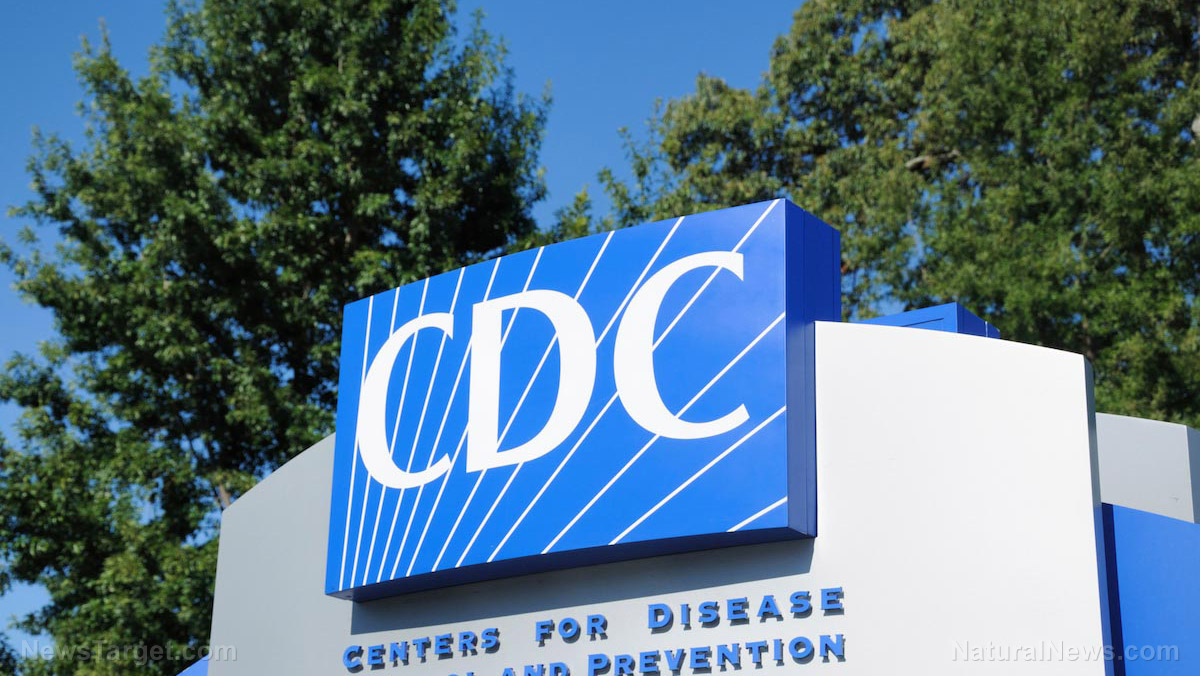Birth control MINI-PILL contains hormone that causes BRAIN TUMORS, killing “two birds with one stone” – the mother and the future child
06/17/2025 / By S.D. Wells

Hundreds of women in the United Kingdom are prepping for legal action after finding out their birth control injection contains hormones that cause brain tumors, while millions of women around the globe have no idea of the risk.
- Legal Action Over Hormonal Risks: Hundreds of women in the UK are preparing lawsuits after discovering their birth control injections contain hormones linked to brain tumors, highlighting a lack of global awareness about these risks.
- Study Links Mini-Pills to Brain Tumors: Prolonged use (5+ years) of progesterone-only contraceptives (“mini-pills”) may significantly increase the risk of meningiomas—non-cancerous but potentially debilitating brain tumors—according to a French study analyzing 8,000 women.
- Growing Safety Concerns: Emerging research challenges the perception of progesterone-only contraceptives as “safer,” with studies showing a fivefold higher meningioma risk after just one year of use, adding to known risks like breast cancer and blood clots.
- Calls for Transparency and Natural Alternatives: Advocacy groups demand independent research into contraceptive risks, while experts urge informed decision-making. Natural medicine advocates promote non-pharmaceutical options to avoid drug-related health complications.
Study Links Long-Term Use of Progesterone-Only Birth Control Pills to Increased Brain Tumor Risk
A new study suggests that prolonged use of progesterone-only contraceptive pills—commonly known as the “mini-pill”—may increase the risk of developing meningiomas, a type of brain tumor. The findings, published by French researchers, add to growing concerns about hormonal contraceptives and their potential long-term health effects.
The study analyzed medical records of more than 8,000 women who underwent surgery for meningiomas, non-cancerous tumors that grow in the membranes surrounding the brain and spinal cord. While typically benign, these tumors can cause serious complications, including headaches, seizures, vision disturbances, and memory loss as they press on critical brain structures.
Researchers found a significant association between meningioma cases and prolonged use (five years or more) of desogestrel, a synthetic progesterone found in some mini-pills. This follows an earlier study this year that reported a fivefold increase in meningioma risk among women who used hormonal contraceptives for over a year. The latest findings raise further questions about the safety of long-term hormonal birth control, which has been widely prescribed since the 1960s.
Since their introduction, hormonal contraceptives have been linked to various health risks, including breast and cervical cancer. The mini-pill, often prescribed to women who cannot take estrogen-containing contraceptives due to health conditions, was previously considered a safer alternative. However, emerging research suggests that progesterone itself may contribute to tumor growth.
Dr. Gaëtan Couloigner, a lead researcher in the study, emphasized the need for further investigation. “While meningiomas are rare, the potential risk associated with long-term progesterone exposure warrants careful consideration,” he said.
Health experts stress that while the absolute risk remains low, women should be informed about potential side effects when choosing contraception. “Patients should discuss their options with their doctors, weighing the benefits of birth control against any possible risks,” said Dr. Sarah Hardey, a gynecologist not involved in the study.
The findings come amid heightened scrutiny of pharmaceutical safety and transparency. Advocacy groups have long called for more independent research into contraceptive risks, arguing that traditional institutions may downplay or overlook potential harms.
As research continues to uncover potential risks associated with hormonal contraceptives, women are encouraged to stay informed and consult healthcare providers about their options. While the mini-pill remains a critical tool for family planning, this study underscores the importance of monitoring long-term health effects. For now, experts advise vigilance—not alarm—as scientists work to clarify these associations and ensure safer contraceptive choices for millions of women worldwide.
Tune your internet dial to NaturalMedicine.news for more tips on how to use natural remedies for preventative medicine and for healing, instead of succumbing to Big Pharma products that cause, spread, and exacerbate disease, disorder, infertility and early death.
Sources for this article include:
Submit a correction >>
Tagged Under:
abortion pill, abortion vaccine, Birth control, birth control vaccine, dangerous hormones, depopulation, hormones, miscarriage, pregnancy, women's health
This article may contain statements that reflect the opinion of the author
RECENT NEWS & ARTICLES
COPYRIGHT © 2017 BIG PHARMA NEWS




















